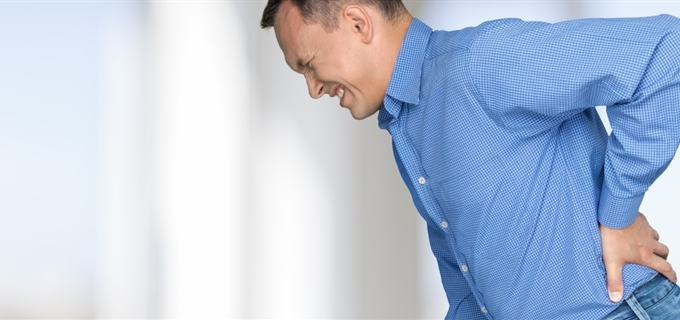Get News & Updates Directly To Your Inbox


Get News & Updates Directly To Your Inbox

Find A Doctor Or Hospital In Your Network.
The search for relief can be frustrating and sometimes unusual. We lie on hard surfaces. We think of elaborate ways to move from our couch to the kitchen, bedroom or bathroom. Crawling on all fours isn’t always out of the question. And many of us are no stranger to curious looks from our pets wondering what on earth we’re doing on the floor.
Back pain is so common that eight out of 10 people  experience it at some point in their lives. You may be tempted to ignore it if you can still function. Yet, our backs deserve more respect than that. They are our body’s “load bearing wall” and the “broadband” of our nervous system. To protect this vital part of your body, it’s good to know about the types and causes of back pain.
experience it at some point in their lives. You may be tempted to ignore it if you can still function. Yet, our backs deserve more respect than that. They are our body’s “load bearing wall” and the “broadband” of our nervous system. To protect this vital part of your body, it’s good to know about the types and causes of back pain.
Have you ever slept wrong? Taken a nasty tumble? Moved or lifted something in an awkward way? Then you may have experienced mechanical back pain. Something in your back is either too tight, out of place — or both.
Types of mechanical back pain include:
Even if you think you know why your back hurts, call your doctor if the pain is severe or lasts longer than three days. You may need an exam. Your doctor may recommend special exercises, decide you need a shot or suggest you wear special shoes or shoe inserts.
If back pain comes on suddenly and doesn’t last longer than six weeks, it’s acute. Acute back pain is the most common type. It may happen after a fall or after you lift something heavy. It often goes away on its own. You may take over-the-counter pain or anti-inflammatory medication to help you through it, but the key to managing acute back pain is to keep moving. Specific exercises are not recommended for acute back pain. Regular day-to-day movement helps reduce stiffness and pain, and helps you get back to normal sooner. Usually, acute back pain does not require surgery.
Chronic back pain is less common than acute pain. Chronic back pain may come on suddenly or gradually, but it hangs around for at least three months. Treatments for chronic back pain are either non-surgical or surgical. Non-surgical treatments are usually the first option, and fix the problem most of the time.
In rare cases, back pain turns out to be the result of something medical rather than mechanical. Back pain can happen with kidney stones or a kidney infection, various forms of arthritis, and a number of other conditions. The important thing to know is when to get help.
It’s time to see your doctor if you experience back pain along with any of these symptoms:
Also see your doctor if severe back pain does not improve with rest or is the result of a fall or other injury.
The answer is as broad as the many causes of back pain. In general, exercising regularly, maintaining a healthy weight and a healthy diet can help prevent back pain.
 MedlinePlus, U.S. National Library of Medicine, 2023; Back Pain,
MedlinePlus, U.S. National Library of Medicine, 2023; Back Pain,  National Institute of Arthritis and Musculoskeletal and Skin Diseases, 2023
National Institute of Arthritis and Musculoskeletal and Skin Diseases, 2023Originally published 1/14/2016; Revised 2021, 2023
Blue Cross and Blue Shield of Texas, a Division of Health Care Service Corporation,
a Mutual Legal Reserve Company, an Independent Licensee of the Blue Cross and Blue Shield Association
© Copyright 2025 Health Care Service Corporation. All Rights Reserved.
Verint is an operating division of Verint Americas, Inc., an independent company that provides and hosts an online community platform for blogging and access to social media for Blue Cross and Blue Shield of Texas.
![]() File is in portable document format (PDF). To view this file, you may need to install a PDF reader program. Most PDF readers are a free download. One option is Adobe® Reader® which has a built-in screen reader. Other Adobe accessibility tools and information can be downloaded at https://access.adobe.com.
File is in portable document format (PDF). To view this file, you may need to install a PDF reader program. Most PDF readers are a free download. One option is Adobe® Reader® which has a built-in screen reader. Other Adobe accessibility tools and information can be downloaded at https://access.adobe.com.
![]() You are leaving this website/app ("site"). This new site may be offered by a vendor or an independent third party. The site may also contain non-Medicare related information. Some sites may require you to agree to their terms of use and privacy policy.
You are leaving this website/app ("site"). This new site may be offered by a vendor or an independent third party. The site may also contain non-Medicare related information. Some sites may require you to agree to their terms of use and privacy policy.
Powered by Verint